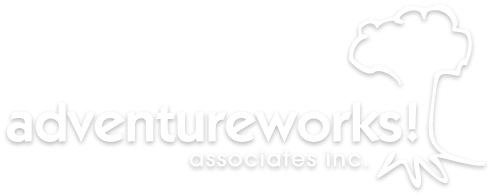Tips for managing the risks of your adventure program this summer
/Summer has officially started and camp programs will begin shortly. I have been thinking a lot about risk these past few weeks. Over the past several months we have provided lots of rope course training, certification testing, and delivered lots of ropes course and rock climbing programs. Teaching and mentoring new facilitators and instructors allows me to view risk in some unique ways.
Managing a high risk program like a climbing wall or ropes course should not be left to the untrained and inexperienced. These program areas are fun and exciting for campers but ALWAYS pose real hazards. Already this season I am aware of a few incidents. While I don't know the specific causes of any of these accidents, human error likely played some role. Human error is the leading cause of accidents in these activities. These errors are often caused by a combination of poor decision making, careless attitude, and general inexperience. This is often magnified by other factors like immaturity, showing off for peers, and inappropriate assessment of risk. The camp lifestyle also brings with it other strains which contribute to errors such as dehydration, sleep deprivation, and poorer than usual nutrition.
Here is my top ten list for helping manage the human risks of your adventure program:
1. Superheros need not apply. Just because someone is a climber doesn't mean they have good judgment. Skills can be taught- judgment is harder.
2. Select people who are excited about the adventure program. They should be fit enough to climb confidently and enjoy it!
3. Professional Training. Make sure your staff have been trained in the requisite skills to operate your program by an accredited knowledgeable professional. Consult us about the mix of certified and uncertified staff for your program.
4. Adherence to local operating procedures: Follow the procedures provided to you by your vendor. Your 19 year old instructor doesn't know how to run the activity better than the organization who designed and built your course.
5. Apprenticeship. People who learn new skills will make mistakes. Make sure someone who is more experienced is there to back them up while they are learning.
6. The rules for campers apply for staff. Staff don't have special shoes for overcoming gravity! Staff need to follow your local operating procedures.
7. Manage the risk by managing your staff. Just because they took the training and you didn't doesn't mean you can't supervise them.
8. If something seems wrong it probably is. Call us and we will answer your questions.
9. Scheduling. Give your staff a reasonable schedule with reasonable time for programming. Rushing to get "everyone a turn" leads to mistakes. Avoid high risk programming times like after dinner.
10. Document close calls and incidents. Use these as learning opportunities. These will give you insights into problem areas.


